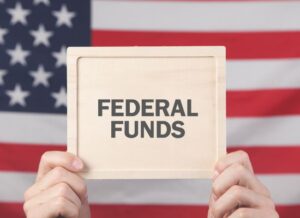
On Friday, March 27, President Trump signed into legislation the Coronavirus Aid, Relief and Economic Security Act (CARES) Act. The $2.2 trillion legislation represents the largest stimulus package in U.S. history—dwarfing the $800 billion package signed during the 2008 financial crisis—and provides a variety of economic relief measures to mitigate the impact of the coronavirus pandemic on American society.
As part of the CARES Act, the federal government has also provided for disaster assistance loans through the Small Business Administration. Below is CBM’s overview of the SBA loans.
Small Business Loan Provisions
The CARES Act will provide $349 billion to support loans through a new paycheck protection program designed to keep employees on payroll and save small businesses. This is a new, but temporary, Small Business Administration (SBA) program related to the existing SBA Section (7a) loan program.
It is expected that the Treasury Department and the SBA will increase the number of banks and credit unions and, possibly, captive finance companies available to make these loans.
Minimal Eligibility Requirements
Any business with payroll expense on February 15, 2020 is eligible.
A key provision of the bill is that it applies to employers with less than 500 employees which could put affiliated companies under common ownership over the 500-employee limit. For franchised car and truck dealers, there is an important provision that appears to waive this affiliation rule and allow franchisees whose franchisor has a franchise code from the SBA to apply for separate loans even when combined they are over the 500 employee limit. The individual companies must still have less than 500 employees.
Requirements for Borrower to Obtain Loan
The borrower must make a good faith certification that the economic conditions caused by COVID-19 make the loan necessary and that the proceeds will only be used to retain employees through payroll support and to pay salaries, mortgage, rent & utility payments and cover debt obligations (interest only) incurred prior to the covered period (February 15).
No personal guarantees or collateral are required for the loans and they are guaranteed by the government through December 31, 2020.
The borrower cannot currently be receiving support under the Small Business Act.
Loan Terms
The interest rate is capped at 0.5% and the first six months’ payments are automatically deferred.
There are no application fees, closing costs or required collateral. The loan process is designed to be quick and easy since the loans are 100% guaranteed by the SBA.
Maximum Loan Amount
The maximum loan amount will be 250% of an employers’ average monthly payroll costs for the prior twelve months not to exceed $10,000,000. Payroll costs include salaries, paid time off, health insurance, state and local taxes and retirement contributions (capped at $100,000 annually per employee). The twelve-month average would be multiplied by 2.5.
Loan Forgiveness
Borrowers are eligible for loan forgiveness for an eight-week period beginning with the loan origination. The amount forgiven will be equal to certain expenses incurred in the eight-week period with a minimum of 75% used for payroll. These expenses include payroll costs described above, mortgage interest on debt incurred prior to February 15, 2020, rent and utilities also originated prior to February 15, 2020.
The amount forgiven cannot be more than the principal of the loan.
Reduction of Loan Forgiveness
The borrower has the option of comparing their full-time employees working during two reference periods—from February 15 to June 30 of 2019, or from January 1 to February 29, 2020 as comparison points for any employee reduction. A reduction in total pay of greater than 25% for any employee earning over $100,000 or less would also reduce the forgiveness amount. An employer can reduce pay up to 25% and still qualify for the full amount of allowed debt forgiveness. The debt forgiveness is not subject to federal income tax.
Loan Balances Not Forgiven
Loans not fully forgiven after one year will be considered debt with loan two-year terms at 0.5% interest.
How to Apply
You can apply through any existing SBA 7(a) lender or through any federally insured depository institution, federally insured credit union, and Farm Credit System institution that participates. Other regulated lenders will be available to make these loans once they are approved and enrolled in the program. You should consult with your local lender as to whether it is participating in the program.
Lenders may begin processing loan applications as soon as April 3, 2020.
Click here for more information about the loans on the SBA website.
Click here to access the loan application website, if you wish to apply for an SBA loan under these conditions.
The U.S. Treasury and Small Business Administration are developing final details about the program.
It is also possible that further legislation will be passed as it is already being discussed.
CBM will continue to provide breaking news to clients and friends of the firm as the very fluid COVID-19 situation develops, and we encourage you to keep an eye out for future alerts dedicated to the impact of the CARES Act.
We hope you all stay safe during this unprecedented time.
Please contact Senior Vice President John Comunale at CBM via our online contact form for more information.
Councilor, Buchanan & Mitchell (CBM) is a professional services firm delivering tax, accounting and business advisory expertise throughout the Mid-Atlantic region from offices in Bethesda, MD and Washington, DC.



